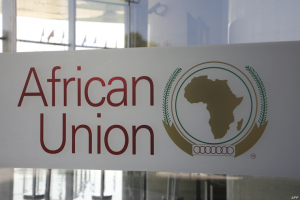Liberia: Deaf Children in Bong County Denied Education Despite Inclusive Policy

In classrooms they may never enter and lessons they may never hear, dozens of deaf children in Bong County are being systematically denied their right to education–victims of a public school system that offers them no place, no support, and no future.
Despite the presence of more than 30 public schools across the county, not one is designed to accommodate children with hearing impairments. Advocates for disability rights say the absence of inclusive infrastructure is not just an oversight–it’s a form of institutional discrimination that pushes deaf children to the margins of society.
“There is no public school in Bong County dedicated to the deaf community,” says Arthur Bondo, County Coordinator for Persons Living with Disabilities. “These children are being left behind by a system that simply doesn’t see them.”
Although no official statistics exist for the number of deaf children in the county, Bondo says the population is steadily growing. The World Health Organization estimates there are more than 466 million people with disabling hearing loss globally. In Liberia, the African Sign Language Resource Center puts the deaf population at roughly 3,000–though that number could be much higher due to lack of nationwide data collection.
In Bong County, the Gbarnga Central School of the Deaf stands as the only institution offering tailored education to children with hearing impairments. It is not a government facility but the private home of Ninga Colley, a local educator who, in 2019, converted her modest three-room house into a learning space for children excluded from the mainstream system.
“I built this because there was nowhere else for these children to go,” Colley says.
Today, the school enrolls 21 students and employs just four teachers. While the school’s exterior appears freshly painted and inviting, the inside tells a different story: no ceilings, peeling chalkboards, and heavily scratched walls. Supplies like chalk and markers routinely run out.
Colley says she has used her own savings to pay teachers and keep the doors open. “Eighty percent of our students’ families can’t even afford the minimal fees we ask,” she says. “We’ve made countless appeals to local officials and donors, but support remains scarce.”
Demand for placement at the school is rising, yet Colley says they simply don’t have the space or resources to accept more students. “It hurts to turn children away, but what can we do?”
She also expressed concern that her students have nowhere to go after completing primary school. “There are no secondary schools for deaf children in Bong,” she says. “Their education stops here, and so do their dreams.”
Visually Impaired Children Also Sidelined
The neglect is not limited to children with hearing loss. According to Tarnue Max, Secretary General of the Christian Association of the Blind in Bong, visually impaired children are similarly abandoned by the education system.
“In Bong County, there is not a single school that caters specifically to blind children,” Max says. “Teachers in regular public schools aren’t trained to work with visually impaired students, and the schools don’t have the materials to support them.”
Max says that while his association operates a small program for blind children at its headquarters in Monrovia, it reaches only a fraction of those in need.
“This is a national issue. We are excluding thousands of children who deserve a chance,” he adds.
Constitutional and Policy Failures
Liberia’s Constitution guarantees the right to education. Article 6 of the 1986 Constitution states that “The Republic shall… provide equal access to educational opportunities and facilities for all citizens to the extent of available resources.”
In practice, however, implementation has lagged far behind. The 2018 Inclusive Education Policy calls for all schools to meet inclusive education standards–addressing accessibility, infrastructure, classroom materials, and trained personnel. But five years later, little has changed for children with sensory impairments in Bong and across Liberia.
“This is not just an education issue–it’s a human rights crisis,” says Bondo.
Voices Calling for Change
Philip Mulbah, a decorated educator and two-time winner of the Bong County Best Teacher Award, says the failure to accommodate children with special needs reflects a national lapse in priorities.
“People with disabilities deserve quality education, too,” Mulbah says. “We have policies on paper, but we’ve failed in practice. And rural communities like Bong suffer the most.”
He pointed to the success of Nowah Gibson, a person with a disability who now serves as Deputy Managing Director of the Liberia Telecommunications Authority, as an example of what’s possible when opportunities are available.
“Disability is not inability,” Mulbah says. “But when we deny education, we deny potential.”
He is calling on the national government and international donors to prioritize the construction of specialized schools and the training of inclusive education teachers. “If we do not act now, we will create a permanent underclass of children cut off from learning, dignity, and the chance to contribute to society.”
International Commitments Unfulfilled
Liberia is a signatory to the United Nations Convention on the Rights of Persons with Disabilities (UNCRPD), which mandates equal treatment, inclusive education, and freedom from discrimination. Yet for children in Bong County, that promise remains unfulfilled.
“We are not asking for luxury,” says Colley. “We’re asking for basic human dignity–a chance for these children to learn and grow.”
In a region where education remains the key to escaping poverty, deaf and blind children in Bong County are still waiting for the doors to open.
By Liberian Investigator.



